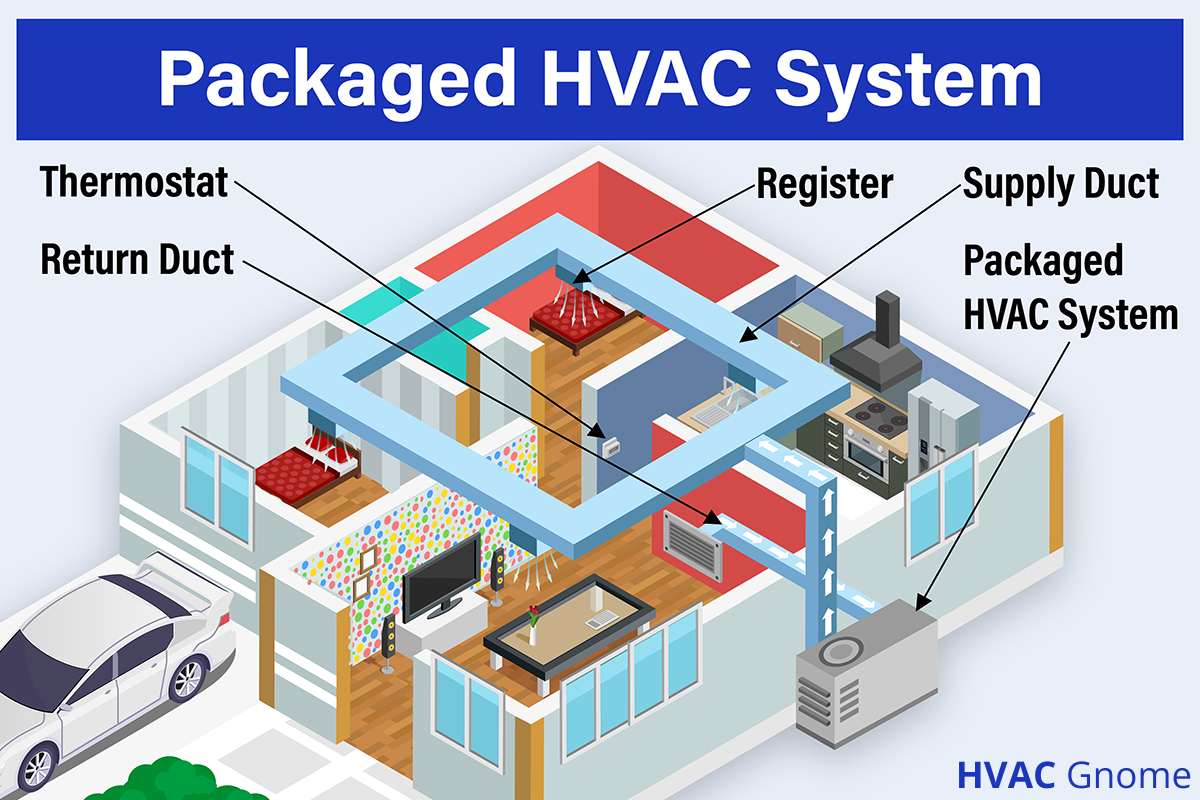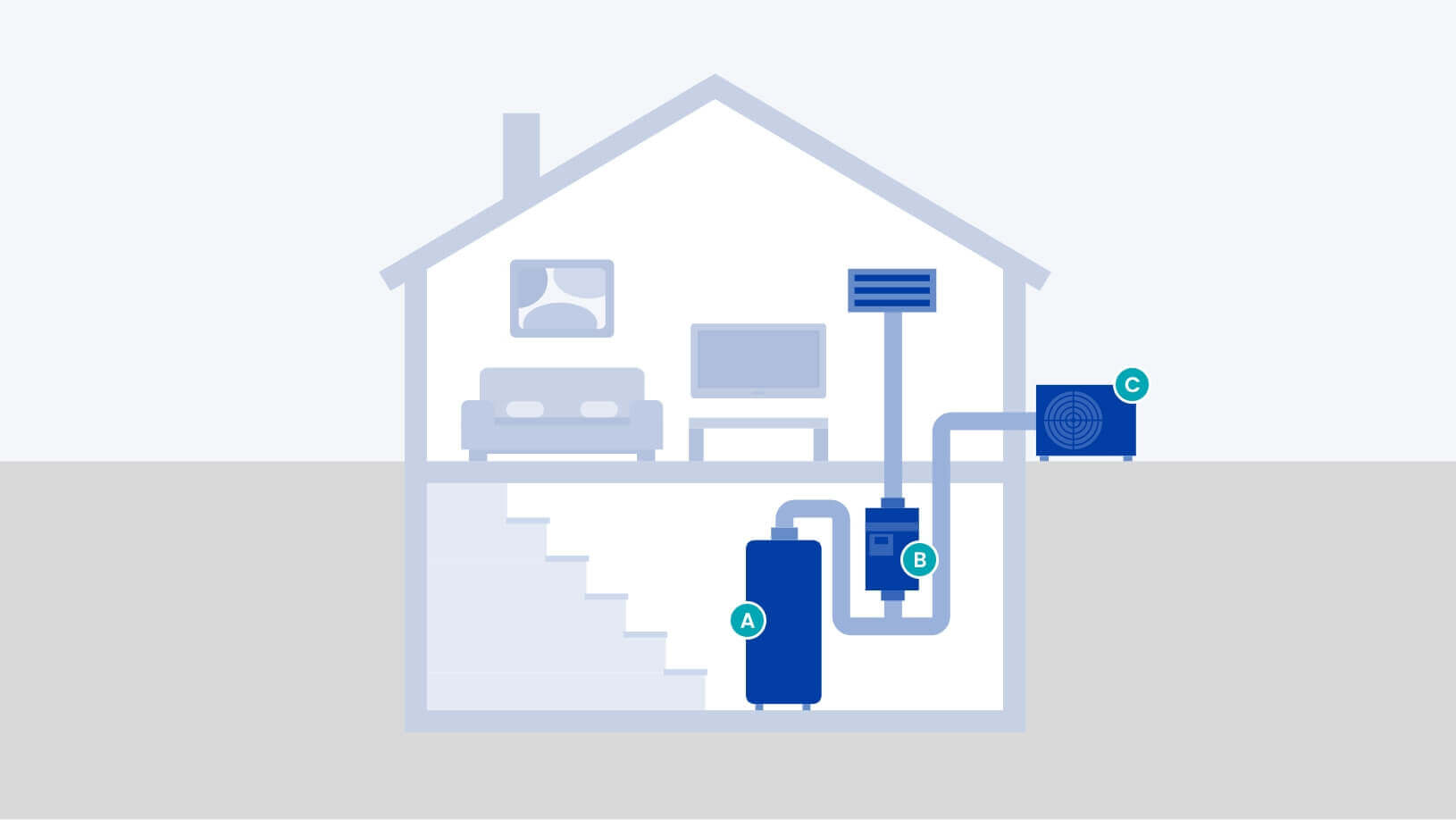Commercial HVAC Repair to Maintain Your Service Running Efficiently
Commercial HVAC Repair to Maintain Your Service Running Efficiently
Blog Article
Exactly How Cooling Solution Revolutionize Indoor Environments for Year-Round Convenience
The introduction of air conditioning systems has without a doubt changed the means we experience interior atmospheres, supplying extraordinary control over temperature level and convenience throughout the year. These systems go past mere temperature modifications; they improve interior air high quality and contribute dramatically to energy effectiveness.
Temperature Level Control and Versatility
When it comes to accomplishing year-round comfort, the significance of temperature control and flexibility in air conditioning systems can not be overstated. Modern air conditioning units provide innovative modern technologies such as programmable thermostats and variable rate compressors, which enable individuals to maintain desired temperature levels with impressive efficiency.
Versatility is one more critical part of contemporary cooling systems. With features like zoning capabilities, customers can tailor temperature level setups in different locations of a structure, dealing with private choices and usage patterns. This degree of control guarantees optimal comfort in every space while reducing energy waste. Furthermore, some systems incorporate wise innovation, allowing remote gain access to and monitoring through smart phones. This development permits individuals to change setups on-the-go, giving unequaled comfort and versatility.
In industrial rooms, this flexibility is specifically advantageous, as it allows services to produce customized environments that boost performance and client fulfillment. Eventually, the accuracy and flexibility of modern-day a/c systems play a pivotal function in supplying efficient, year-round indoor convenience.
Enhancing Indoor Air Top Quality
In enhancement to temperature control, improving interior air top quality is an important element of contemporary cooling systems. These systems play a vital role in preserving a comfy and healthy setting by straining allergens and toxins, therefore improving air purity. Including high-efficiency particle air (HEPA) filters, modern-day air conditioners can capture microscopic bits, such as plant pollen, smoke, and dirt, which add to respiratory system concerns and allergies. This filtering process is vital for making sure that the air flowing within an area is safe and tidy to breathe.
Additionally, progressed a/c systems frequently consist of features such as moisture control, which is crucial in protecting against mold and mildew growth and maintaining optimum dampness levels (HVAC Contractor). Too much moisture can lead to discomfort, advertise microbial growth, and exacerbate certain health and wellness conditions. By regulating humidity, air conditioning system aid reduce these risks, further enhancing interior air quality
In addition, some systems incorporate air purifiers and ionizers, using modern technologies that reduce the effects of contaminants and deactivate air-borne microorganisms. This thorough method to air quality monitoring makes certain a healthier indoor environment, reducing the danger of ailment and boosting overall well-being. Consequently, the emphasis on air quality improvement underscores the developing role of cooling systems past mere temperature policy.
Energy Performance Innovations
Modern a/c systems have gone through significant improvements in energy performance, adding to both price financial savings and environmental sustainability. The fostering of high-efficiency compressors, variable speed motors, and advanced refrigerants are essential technologies that have actually changed exactly how these systems operate. High-efficiency compressors use much less power to keep desired temperatures, decreasing electricity intake. Variable rate motors change the air flow and cooling output to match real-time need, maximizing efficiency while minimizing energy use.
Smart thermostats have additionally played a crucial role in enhancing power efficiency. These tools discover user preferences and adjust cooling down routines accordingly, making certain that air conditioning systems run only when essential. Combination with wise home innovations permits remote and tracking, additional reducing energy wastefulness.
These refrigerants are not only better for the environment however likewise improve system performance, lining up with worldwide efforts to minimize carbon footprints. Innovations in warm exchanger modern technology have actually allowed much more effective heat transfer, boosting total system efficiency.
Effect On Wellness and Health
The impact of cooling systems on wellness and wellness is complex, impacting different facets of daily life. Mostly, these systems offer remedy for extreme temperatures, Click Here which is essential for prone populations such as the elderly and individuals with certain health and wellness conditions. By preserving a steady indoor climate, a/c decreases the danger of heat-related diseases, consisting of warm exhaustion and heatstroke, therefore safeguarding residents' health and wellness.

Nevertheless, it is vital to keep a/c systems consistently to guarantee their optimal functionality and to stay clear of prospective wellness threats connected with poorly kept systems, such as the spreading of germs. Inevitably, when properly managed, air conditioning systems play a crucial role in boosting convenience, advertising well-being, and supporting a much healthier living atmosphere throughout the year.
Assimilation With Smart Technology
Smart technology has actually reinvented the means a/c systems operate, using enhanced control, ease, and performance. Modern a/c devices currently incorporate flawlessly with smart home ecological communities, enabling users to manage their interior environment from another location through smart devices or voice-controlled devices. This connectivity allows real-time monitoring and adjustments, guaranteeing that energy usage is maximized and convenience is maintained without my link the need for continuous hands-on treatment.
The assimilation with clever technology likewise helps with the use of advanced organizing attributes, permitting systems to change temperatures according to tenancy patterns and choices. HVAC Contractor. This not just makes the most of convenience but also decreases unneeded power use, adding to reduced utility expenses and a lowered carbon footprint. In these details addition, clever sensors provide useful data on air top quality and system efficiency, notifying customers to potential concerns before they rise into costly repairs
Additionally, compatibility with wise home assistants such as Amazon Alexa or Google Assistant boosts customer experience by supplying hands-free control and the ability to produce customized automation routines. As clever innovation proceeds to evolve, it will definitely bring more innovations to a/c systems, ensuring they continue to be at the leading edge of supplying optimal interior environments year-round.
Verdict

In addition to temperature control, boosting indoor air quality is an important element of modern-day air conditioning systems. Integrating high-efficiency particulate air (HEPA) filters, contemporary air conditioners can record tiny bits, such as dirt, plant pollen, and smoke, which contribute to breathing issues and allergic reactions. By regulating humidity, air conditioners help minimize these threats, further boosting indoor air quality.
The focus on air high quality improvement underscores the advancing duty of air conditioning systems past simple temperature guideline.
Moreover, air conditioning systems contribute to enhanced indoor air quality by filtering system out pollutants, irritants, and particulate matter.
Report this page